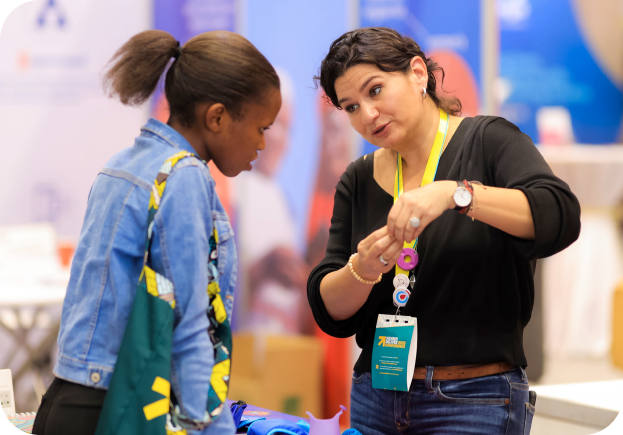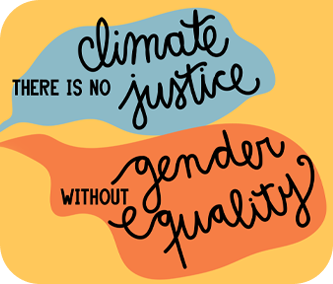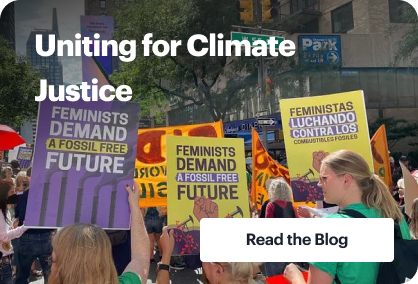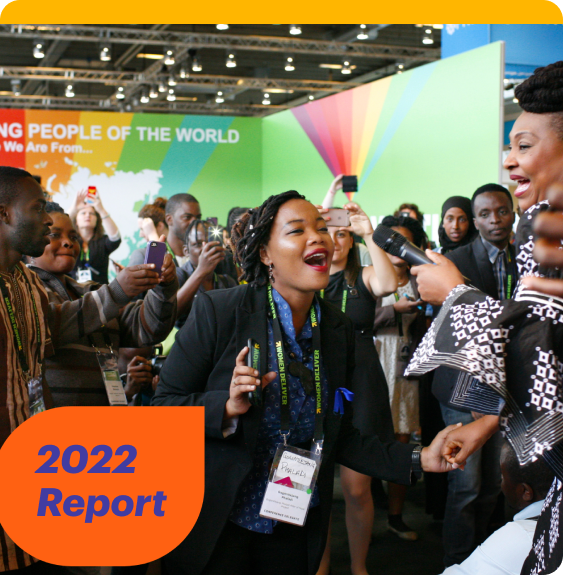Ensuring Gender Justice and SRHR in the Face of the Climate Crisis
THE CLIMATE CRISIS IS NOT GENDER NEUTRAL
The global climate crisis disproportionately affects those who have contributed to it the least, with adolescent girls, women, and gender-diverse people facing the greatest impacts. They have the least resources to cope and recover in the face of climate shocks and stresses, and they bear most of the burden from community and household coping strategies.

The climate crisis has both direct and indirect impacts on sexual and reproductive health (SRH):
- Climate-induced shocks, like storms and floods, damage healthcare infrastructure, hindering physical access to SRH services and products.
- Climate shocks and stresses — such as extreme heat and droughts — increase domestic and care work, burdening girls and women with additional time spent on responsibilities like water procurement, crop maintenance, and caring for others in the household. Spending more time at home on these tasks exposes them to a higher risk of gender- based violence.
- In the face of these shocks and stresses, communities and households often use coping strategies that especially impact girls — such as pulling them out of school to cope with the increased need for domestic work or caring responsibilities, or resorting to early or child marriages to cope with economic difficulties. Without access to school, girls are denied comprehensive sexuality education and future economic opportunities.
- These shocks and stresses can often lead to reduced agricultural productivity and nutrition challenges, impacting maternal, adolescent, child, and newborn health. High temperatures increase the risk of low birth weight, early births, and medical complications for the pregnant person.
These climate-induced impacts are not only derailing progress toward gender equality but also hindering the realization of human rights, including sexual and reproductive health and rights (SRHR). Structural inequalities and historical power imbalances further limit access to financial resources and SRH services for girls and women.
When addressing the climate crisis from a human rights-based and justice perspective, SRHR should not be linked to mitigation. The climate crisis is caused by over consumption, not population. The responsibility for reducing greenhouse gas emissions lies with those in power in governments and corporations, not with the bodies of women and girls.
 Climate justice can only be achieved if girls and women have access to SRHR to build their resilience, and if we work collectively to reduce the burden of coping strategies on them and foster their ability to adapt to the climate crisis. Incorporating SRHR into climate policies and programming and considering climate justice in SRHR discussions is essential. This must be done with meaningful engagement of adolescent girls and women, amplifying their experience, expertise, creativity, and leadership.
Climate justice can only be achieved if girls and women have access to SRHR to build their resilience, and if we work collectively to reduce the burden of coping strategies on them and foster their ability to adapt to the climate crisis. Incorporating SRHR into climate policies and programming and considering climate justice in SRHR discussions is essential. This must be done with meaningful engagement of adolescent girls and women, amplifying their experience, expertise, creativity, and leadership.
Back
to Top






